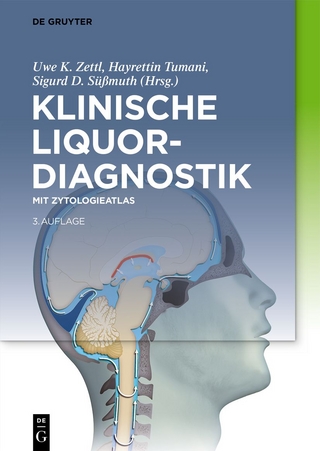
Frontiers in Psychiatry
Springer Verlag, Singapore
978-981-329-720-3 (ISBN)
Professor Yong-Ku Kim, M.D, Ph.D., Department of Psychiatry, College of Medicine, Korea University, South Korea Yong-Ku Kim, MD, PhD is a Professor of Psychiatry at College of Medicine, Korea University. He received a MD degree from College of Medicine, Korea University in 1987 and a PHD in psychiatry from Korea University in 1998. Dr. Kim has been affiliated with Korea University since 1998, first as an assistant professor (1998-2000), then as associated professor (2001-2005), professor (2006- present). For the past 20 years, his professional activities have extended beyond the area of pure clinical or research work. Dr. Kim has well over 200 publications in peer-reviewed international journals, including Biological Psychiatry, Molecular Psychiatry, Clinical Journal of Psychiatry, and Progress in Neuropsychopharmacology and Biological Psychiatry and 30 publications of book chapters and have made over 90 academic presentations in my area of interest. Dr. Kim is a fellow of Collogicum Internationale Neuropsychopharmacologicum, International Society for Affective Disorders, World Federation of the Society of biological Psychiatry. He currently sits on the editorial boards of some leading academic journals in the field of neurobiology, including Progress in Neuropsychopharmacology and Biological Psychiatry, Psychiatry Investigation, Brazilian Journal of Psychiatry, Frontiers of Neuroscience, Frontiers of Psychiatry and Neurology and so on. Dr. Kim is also Editor-in Chief of Current Psychiatry Research and Reviews. Dr. Kim received prestigious awards such as Astrageneca Award and Dr. Paul Janssen Schizophrenia Research Award. Dr. Kim is currently the president of Korean society of Biological Psychiatry (2016-present).
Part 1. Challenges and Strategies.- Chapter 1. Challenges of Big Data and Discovery Sciences in Psychiatry.- Chapter 2. Challenges and Strategies for the Classification of Psychiatric Disorders.- Chapter 3. Genetic markers of Alzheimer’s disease.- Chapter 4. Genetic markers in Psychiatry.- Chapter 5. Recent advances in Neuroimaging of Small Vessel Disease in Late-life Depression.- Part 2. Advances in artificial intelligence technologies.- Chapter 6. Artificial Intelligence in Psychiatry.- Chapter 7. Machine Learning in Neural Networks: Clinical Opportunity of a Paradigm Shift.- Chapter 8. Imaging Connectomics: A new insights for understanding brain diseases.- Chapter 9. Development of Neuroimaging–based Biomarkers in Psychiatry: back to the future.- Part 3. Research methods for Precision Medicine.- Chapter 10. Precision Psychiatry: Biomarker guided Tailored Therapy for Effective Treatment and Prevention.- Chapter 11. Women Psychiatry: Do we need a New Paradigm?.- Chapter 12. CHILDPSYCHIATRY: What We Know and What We Don’t Know on Mood Disorders.- Chapter 13. The frontiers of suicide -A global threat or global phenomenon.- Part 4. Ongoing paradigm shifts.- Chapter 14. Animal Research in psychiatry: a paradigm shift.- Chapter 15. Modeling psychiatric diseases with induced pluripotent stem (iPS) cells.- Chapter 16. Paradigm Shift in Psychopharmacology and Psychotherapy Research.- Chapter 17. More integrated Bio-Psycho-Social approach to Psychiatric Disorders.- Chapter 18. Early Identification of Psychiatric Disorders: do we need a paradigm shift?.- Part 5. New Theoretical frameworks for Research.- Chapter 19. Theoretical psychiatry: Missing link between academic and clinical psychiatry for further scientific and professional maturation of psychiatry.- Chapter 20. Theoretical psychiatry and transdisciplinary integrative approach: Stepping stones to precision and person-centered psychiatry.- Chapter 21. Developmental Psychopathology: Application to Psychiatry.- Chapter 22. Emotion: Concepts and Dysfunctions in Neuropsychiatric Research.- Chapter 23. Resilience: A Psychopathological Construct for Psychiatric Disorders.- Chapter 24. Inflammation for psychiatric disorders: Fact or Hypothesis.- Chapter 25. Smart Healthcare System and Precision Medicine: through the Brain Mechanisms of the Smartphone and Internet Game Addiction.- Part 6. Novel interventions.- Chapter 26. Telomere-telomerase system in psychiatric disorders and it’s role in treatment.- Chapter 27. Neuromodulation on Cognitive Control of Emotion: a paradigm shift.- Chapter 28. Psychobiotics: A paradigm shift in Psychopharmacology.- Chapter 29. Digital Interventions for Mental Disorders: Key Features, Efficacy, and Potential for Artificial Intelligence Applications.- Chapter 30. Cognitive behavioral therapy for insomnia using internet, mobile application, and wearable devices.
| Erscheinungsdatum | 29.11.2019 |
|---|---|
| Reihe/Serie | Advances in Experimental Medicine and Biology ; 1192 |
| Zusatzinfo | 17 Illustrations, color; 4 Illustrations, black and white; XI, 641 p. 21 illus., 17 illus. in color. |
| Verlagsort | Singapore |
| Sprache | englisch |
| Maße | 155 x 235 mm |
| Themenwelt | Medizin / Pharmazie ► Medizinische Fachgebiete ► Laboratoriumsmedizin |
| Medizin / Pharmazie ► Medizinische Fachgebiete ► Psychiatrie / Psychotherapie | |
| Medizin / Pharmazie ► Studium | |
| Naturwissenschaften ► Biologie ► Humanbiologie | |
| Naturwissenschaften ► Biologie ► Zoologie | |
| ISBN-10 | 981-329-720-4 / 9813297204 |
| ISBN-13 | 978-981-329-720-3 / 9789813297203 |
| Zustand | Neuware |
| Haben Sie eine Frage zum Produkt? |
aus dem Bereich


